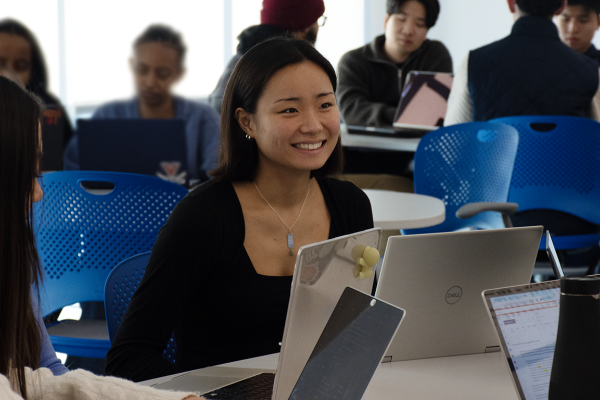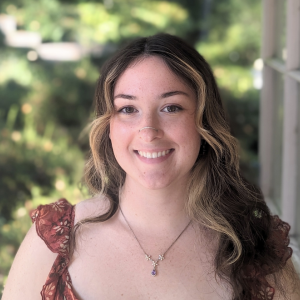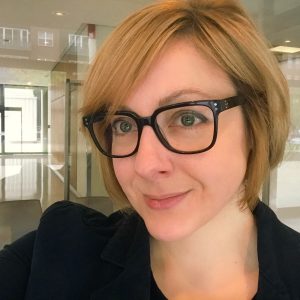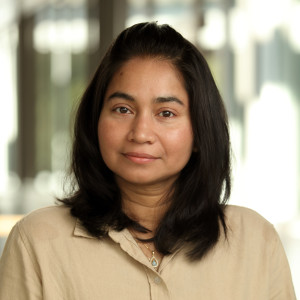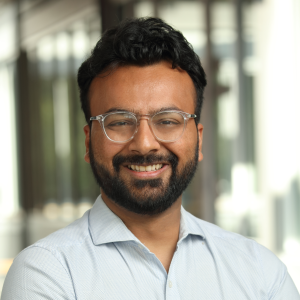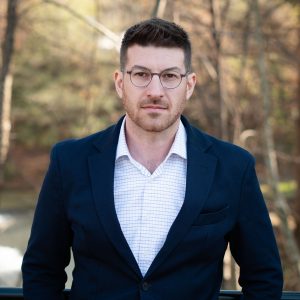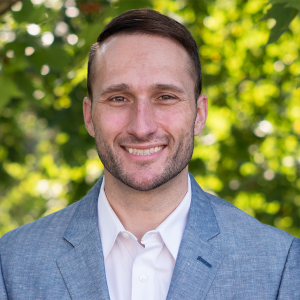New Project Demystifies Data Science for High School Students
A pilot program at the University of Virginia's School of Data Science demystifies data science for high school students by pairing them with faculty research publications to develop plain-language versions accessible to a wider, general audience.
The Data Science Research Demystification Project, led by Associate Dean for Community and Government Partnerships Siri Russell and Program and Events Manager Emma Cox, worked with students from the Renaissance School, a college preparatory school in Charlottesville for academically and artistically advanced students. After two months of research, collaboration, and preparation, the students presented their versions of the papers at a special event held at the School of Data Science.
Russell, the ideator of the Demystification Project, provided insights into the program's goals and development. "The project was born out of the School of Data Science’s commitment to promoting the accessibility and relevance of data science in our local community and beyond," she said.
In recent years, the School of Data Science has expanded its efforts to introduce data science to learners of all ages, focusing on high school students. “Over the course of that work, we recognized a lack of local opportunities for high school students to engage with data science research," said Russell. "This pilot program was designed to address that gap.”
After Cox introduced the program to the entire Renaissance student body (nearly half of the enrolled students participated) and explained why it was important to communicate academic research in plain language, students were assigned to School of Data Science faculty to review their research papers. Professor Paul Perrin, Associate Professor Mar Hicks, and Assistant Professors Alex Gates, Chirag Agarwal, and Farhana Faruqe volunteered to work with students. Hicks also supported the program as faculty sponsor.
Student groups utilized a project guidebook developed by Cox to help direct and refine their research communication. This guide included an overview of the basic structure of research papers, techniques to synthesize complex topics, best practices for research writing processes, and a guide to common academic phrases and plain language equivalents.
Hicks worked with the students to demystify their paper, "When Winning Is Losing: Why the Nation that Invented the Computer Lost Its Lead." Hicks remarked that students had questions about everything from what data science is to its real-world applications, but after completing the program, they were impressed by the students' ability to grasp complex topics.
"I think students came away with exactly what I hoped—a better understanding of the depth and breadth of the kind of work that goes into 'data science' and a keener ability to read and synthesize difficult information," Hicks said, noting that this process provided more insights into their own work. "I was really impressed by these high school students' intellectual curiosity and commitment to understanding scholarship."
Students presented their findings to an audience of parents and faculty, exercising not only their research communication skills but also practicing public speaking.
Phil Bourne, dean of the School of Data Science, welcomed the students and emphasized the importance of their education for the collective future. "We want demystification to be your first step—your first entry point into all of this," he said. "It's very important for us to work with the community and see you progress, to ultimately be great contributors to society. Believe me, we need you more than ever right now."
Project 1: Unmasking Fake Footage
Group presentations began with Agarwal's paper, "Statistical sequential analysis for object-based video forgery detection." The students concluded that this paper was looking for a new approach to detect video forgery that included examining individual pixels and observing their changes from frame to frame. The students also pointed out this work was important because it helps to ensure the authenticity of videos for legal cases, journalism, and security.
Project 2: When Computing Lost Its Way
The next group worked with Hicks. "This paper was about how women were forced out of computing in the U.K. as the industry grew more powerful as a whole ... causing way less qualified workers to take over," the students summarized.
They emphasized how there is still an imbalance between the number of male and female workers, so understanding this history is crucial to prevent it from worsening in the future. One student from the group remarked on what they learned. "This changed how I saw data science," he said. "Before this project, I didn't know that data science could tell a story and isn't just about studying lots of numbers."
Project 3: Can We Trust the Machines?
A demystification of Faruqe's paper, "Monitoring Trust in Human-Machine Interactions for Public Sector Applications," was presented next. The students concluded that the paper focused on determining which metrics are best used to measure human and AI technologies in the context of professional occupations like bus driving or college mentoring.
This group also shared their personal reviews of their experiences with the project. "This project was super fun to do," said a member of Faruqe's group. "Not gonna lie, this project was as much a challenge as it was fun. There was lots of complicated jargon and abbreviations, but that just made it so much more satisfying."
Another student said it inspired them to continue their data education in the future. "This experience made me more resourceful when it comes to looking things up," they said. "It has truly inspired me to pursue more opportunities in the future and work with data science."
Project 4: The Math Behind the Fame
The last group presented their version of Alex Gates' paper "An Overview of the Science of Success." They surmised that the goal of the paper was to turn abstract ideas of success into more tangible mathematical functions. "It established that success and performance are different," said the group. "Performance is how well you can complete a task, and success is how much performance that and how much attention that performance gets by the community around it also explains why certain people achieve fame and why others don't."
Bethany Farris, dean of academics at the Renaissance School, applauded the project's impact on the school and its students. "The Demystification Program was transformative for our students in multiple ways," she said. Farris went on to share how a student told her, "I realized data isn't just about a bunch of numbers, it's about the stories they tell."
The School of Data Science hopes to further develop the program and its reach. "Going forward," said Russell, "We plan to expand the opportunity to other high schools and potentially invite faculty from other disciplines to collaborate." Russell hopes that by broadening participation, the program will foster curiosity about data science and academic research while also making complex topics accessible to new audiences.
